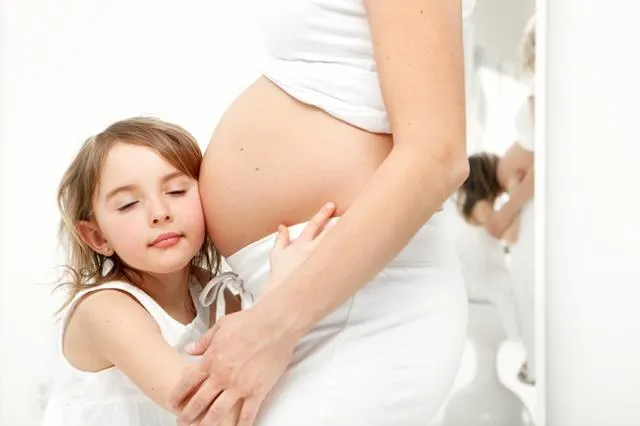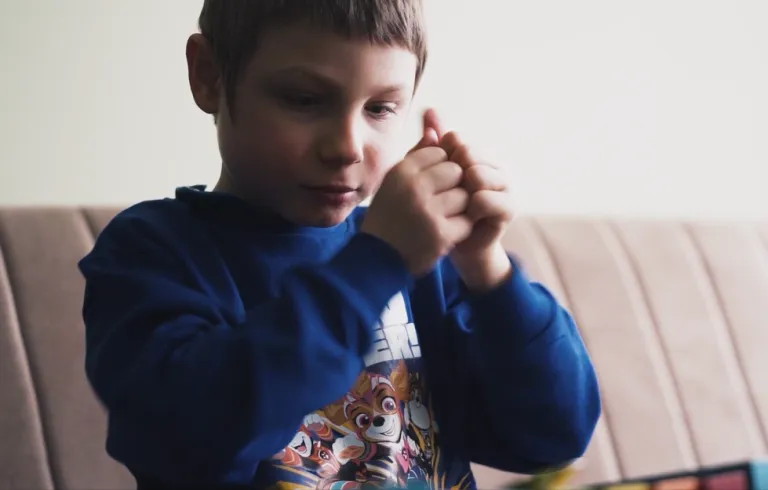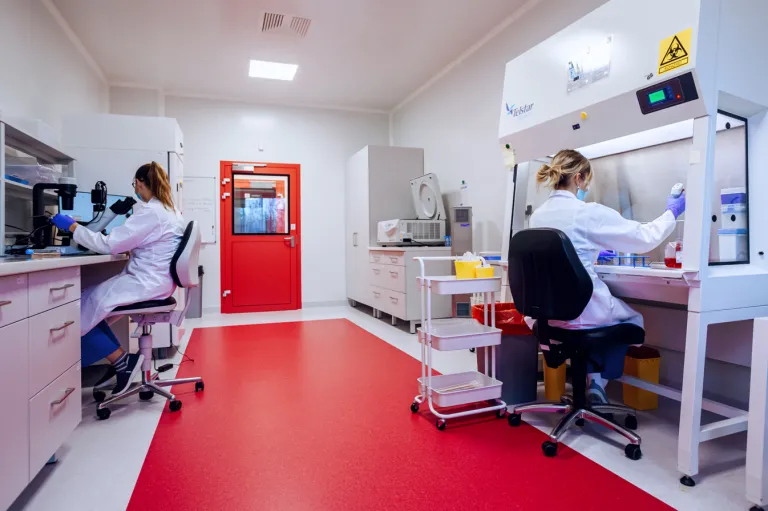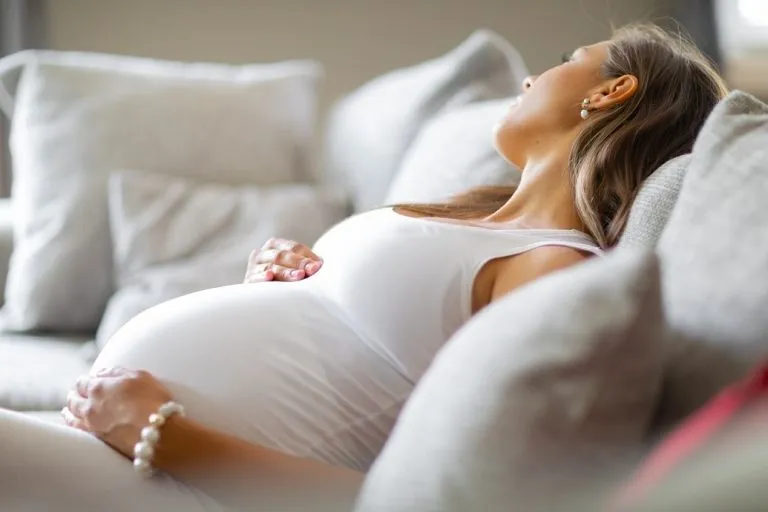Abdominal pain in pregnancy occurs at different stages of pregnancy. Mostly it is a physiological symptom, signaling the growth and movement of the baby in the womb. However, if abdominal pain in pregnancy occurs along with cramps or bleeding, you should contact your doctor immediately.
Abdominal pain in pregnancy (especially pain in the pit of the abdomen in pregnancy), as a rule, occurs early in pregnancy and accompanies the mother-to-be until delivery. Every pregnant woman watches her body with concern and anxiously wonders which symptoms to consult a specialist. It is useful, therefore, to know when abdominal pain is physiology and what constitutes an alarm signal.
Abdominal pain at the beginning of pregnancy as before period
The nature of abdominal pain in pregnancy largely depends on the month of pregnancy or trimester of pregnancy. The abdominal pains that occur in early pregnancy are related to the implantation of the embryo in the uterus. The growing uterus stretches and begins to compress the internal organs. The prickly abdominal pain of pregnancy and increased tenderness that then appears are, therefore, a natural phenomenon. Sometimes abdominal pains in the first weeks of pregnancy resemble menstrual pains, which is a natural phenomenon caused by hormonal changes resulting from conception. In addition, it is important to remember that cramps and abdominal pain in the first trimester of pregnancy may or may not be a harbinger of an impending miscarriage. This is especially likely when the abdomen hardens, plus there is bleeding or spotting, so all worrying symptoms should be consulted immediately with a specialist.
Abdominal pain in pregnancy – 2nd trimester
The emerging abdominal pains of pregnancy in the 2nd trimester are related to the rapid growth and development of the baby and the stretching of the uterus. As a result, a woman may experience severe lower abdominal pain and pulling in the groin. About 20. Week of pregnancy a woman begins to feel the movements of the baby, which at first can also be associated with severe abdominal pain. Between the second and third trimesters of pregnancy, the risk of premature placental detachment also increases. This can manifest itself as back and abdominal pain during pregnancy, as well as a feeling of stretching of the skin on the abdomen. If this is the case, contact your gynecologist immediately. Pain in the pit of the stomach during pregnancy can also be caused by electrolyte deficiency. In this case, mineral salts should be replenished and more fluids should be consumed.
Pain in the pit of the stomach in pregnancy in the 3rd trimester
Pain in the pit of the abdomen during pregnancy in the 3rd trimester may be due to the body’s preparation for childbirth. The third trimester of pregnancy continues to see intense development of the baby. After 20. Week of pregnancy in the pregnant woman may appear the so-called. Braxton-Hicks contractions. They are designed to prepare a woman for the upcoming delivery. These contractions are palpable but not painful, during their duration the uterus hardens, and after their cessation it returns to normal. The onset of these cramps may be accompanied by sacral pain and malaise, in addition, they can annoy a woman quite regularly for several hours and then abruptly disappear. After the 36th week of pregnancy, on the other hand, there are predictive contractions, which are characterized by hardening of the abdomen and increased soreness. Such strong stabbing abdominal pains during pregnancy can make it difficult to function normally, and they increase in frequency and strength the closer you get to delivery. Their characteristic feature is also irregular in occurrence. Abdominal pain can also be particularly troublesome during increased exertion or weight-bearing.
Abdominal pain on the right side in pregnancy, what does it mean?
Appearing abdominal pain on the right side during pregnancy is not necessarily the result of the development of the child in the womb. Non-pregnancy causes of abdominal pain include:
- ectopic pregnancy;
- intestinal obstruction;
- appendicitis;
- pre-eclampsia;
- urinary tract infections;
- kidney stones;
- food poisoning;
- stomach flu.
Abdominal pain, pregnancy
Any worrisome abdominal pain both in the first weeks of pregnancy and in the following weeks is worth consulting a specialist, but there are a few special cases when you should react immediately. If the pain is accompanied by spotting or bleeding, it may be a symptom of miscarriage, placental detachment or premature labor. When the pains are cramp-like, occur regularly and, in addition, during their duration, the abdomen begins to harden, this may be a signal of the onset of labor. If, on the other hand, the patient suffers from diarrhea, vomiting or fever in addition to abdominal pain, this could indicate food poisoning, for example. This condition requires quick intervention, as a pregnant woman is at risk of rapidly progressive dehydration, which is dangerous to her and the baby’s health. It is worth noting that a pregnant woman should not use any diastolic drugs and other pain relievers without the consultation and express recommendation of the doctor in charge of the pregnancy.
Read also: Week 22 of pregnancy – what month is it? Pain in the pubic bone
Rate this article:










